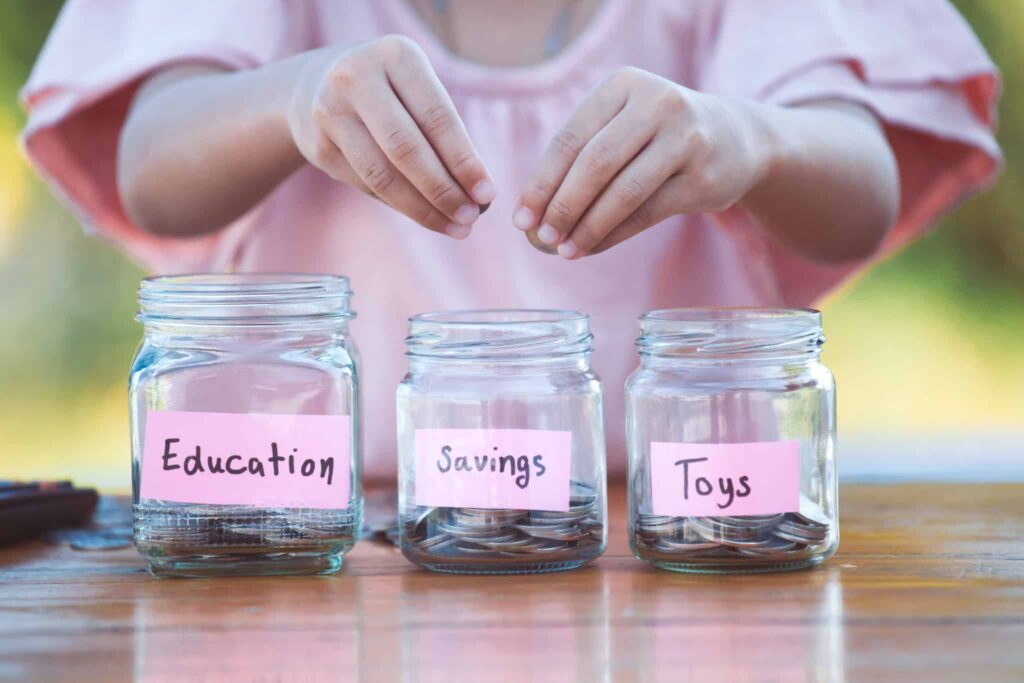Lockdown lessons: the chance to learn about money
Lockdown home-schooling may be testing the patience of many parents around the UK, however in terms of resources, things have developed since the start of the coronavirus pandemic.
Teachers are now presenting online lessons and there has been an increase of learning supplies made available. And it is not just the traditional subjects being taught digitally – there is a host of material on personal finances available suitable for children of all ages.
If you find yourself struggling for inspiration, this period of home schooling could be the perfect opportunity to start introducing your kids to the basic concepts of money, so they not only are broadening their curriculum, but also create some great life habits.
A lot of past generations were not taught the basic financial concepts, and therefore have a hard lesson to learn once they begin earning for themselves. However, this time at home could allow parents the opportunity to change this for younger generations.
Teaching them new things like the true value of money could be a real benefit for their future lifestyle. Whether you are looking to introduce some formal lessons under lockdown, shake up your children’s savings or build in learning about money more subtly into everyday family life, here is a wealth of ideas to inspire parents.
First things first: Bring up the topic.
57% of parents agree they are the single biggest influence on developing their children’s money management skills. However, 58% admit they find it hard to talk to their child about money matters*. Being open about money as an everyday conversation is key to helping them recognise it as a part of life. Everyday examples such as why you are turning the lights off or what they could do with the pocket money they just received are great ways to trigger a conversation.
Next up, show them the money.
Nowadays cash is a bit of an unknown entity, what with the introduction of contactless cards and online bookings. However, contactless suggests the concept of never-ending funds, so having notes as a demonstration is a great visualisation for your kids to understand the concept of budgeting. For younger children, you could use marbles as a concept of earning and how they can budget going forward.
Lockdown is forcing many people to pay closer attention to their household budgets
Introduce them to budgeting
Lockdown is forcing many people to pay closer attention to their household budgets anyway, so why not make this into a real life maths lesson. Building a budget encourage children to take a better look at their spending. Trips to supermarkets can start to build this way of thinking into their mind; setting them a challenge of buying ingredients for a meal for example could be a good activity to keep them busy and get them thinking about what they spend.
What about setting a pocket money routine?
We are still unclear as to how long lockdown teaching and this “new normal” will continue, and although they may not be able to get out and about to spend their pennies, it could be a perfect opportunity to start setting up a pocket money system if you have not already. Kids may have more time to earn extra cash, and you may have more time to introduce a routine. The time in could also help to learn how to save their money, they may even thank you for it in the long run! There is no rule on how much to give, it’s really dependent on your own budgets and what you want their money to be able to cover.


Maybe they have some goals to save for?
Starting goals is a great way to help kids understand saving. The idea of waiting for a child is a little hard to grasp, so discussing what they’d really like to be able to buy and setting that as a goal is a great idea. It’s not only a great saving technique but introduces interest and discourages the instant gratification nature that society may be presenting.
Good old-fashioned Chores.
For generations, parents have been rewarding their children for chores. This is still the case, with a quarter of parents making their offspring learn the value and reward of hard work. With all the extra time they have on their hands, there are sure to be plenty of little jobs they can help out with, or even bigger jobs such as washing the car, that provide a sense of achievement as well as a “payslip” at the end of it.
*https://www.moneyadviceservice.org.uk/en/corporate/uk-parents-struggling-to-talk-to-their-children-about-money
**data from https://www.roostermoney.com/gb/





